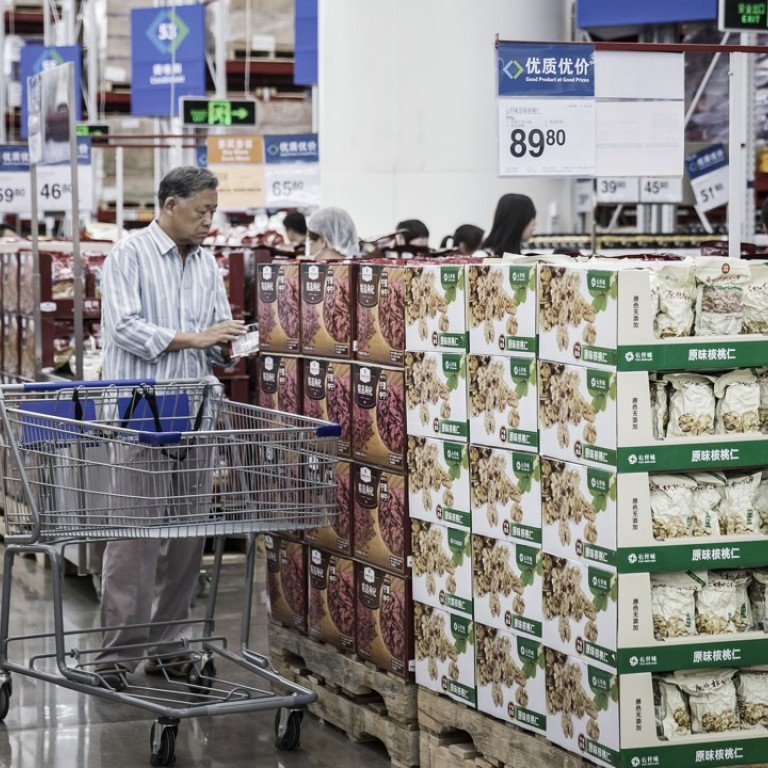
Coalition to drive global food safety efforts with blockchain platform initiated in China
Nestlé, Wal-Mart Stores, Unilever, Dole and Tyson Foods, among others, collaborate with IBM on raising food supply chain standards worldwide
Every year, one-in-10 people fall ill and 400,000 die because of contaminated food, according to recent estimates by the World Health Organisation.
Ten of the world’s largest food industry suppliers, retailers and service providers are now looking to strengthen consumer confidence in the global food system by forming a coalition to revolutionise safety across their industry’s supply chain, using a blockchain technology platform conceived in mainland China.
Consortium members Nestlé, Wal-Mart Stores, Unilever, Dole, Kroger, Golden State Foods, McCormick and Company, Driscoll’s, McLane Company and Tyson Foods have agreed to collaborate with IBM Corp on that initiative, following trials initiated last year on the mainland to step up domestic food safety reform efforts.
“Blockchain technology enables a new era of end-to-end transparency in the global food system – equivalent to shining a light on food ecosystem participants – that will further promote responsible actions and behaviours,” Frank Yiannas, vice-president for food safety at Walmart, told the South China Morning Post on Tuesday.
“I believe this coalition marks an important milestone in the development of technology to help raise global food safety standards.”
Walmart, the world’s biggest retailer that runs more than 400 stores on the mainland, launched its food safety collaboration centre in Beijing in October last year to bring food safety innovation to the country, which had been rocked by various food-related scandals such as the repackaging and sale of expired meat as well as baby milk formula tainted with the industrial chemical melamine.
Doug McMillon, the chief executive at Walmart, said at the time the company and its Walmart Foundation would invest US$25 million over five years to support research projects in applied science, education and communications to enhance Chinese food safety.
Blockchain technology enables a new era of end-to-end transparency in the global food system
One of the first projects to come out of the centre, which opened in March, was a joint blockchain pilot that traces pork, from farm to table, driven by IBM, Tsinghua University and mainland pork suppliers.
Blockchain, the technology behind cryptocurrency bitcoin, represents a secure transaction ledger database that is shared by all parties participating in an established, distributed network. It records and stores every transaction or exchange of data that occurs in the network, essentially eliminating the need for a central authority and providing greater transparency for regulatory reporting.
In the case of the global food supply chain, all participating growers, suppliers, processors, distributors, retailers, regulators and consumers can gain “permissioned” access to known and trusted information regarding the origin and state of food for their transactions.
“That is critical to ensuring the global food system remains safe for all,” Yiannas said.
Many of the critical issues impacting food safety today, such as cross-contamination, the spread of food-borne illness, unnecessary waste and the economic burden of recalls are magnified by the lack of access to information and traceability. It can take weeks to identify the precise point of contamination, causing further illness, lost revenue and wasted product.
In the US, for example, it took more than two months for authorities to identify the farm source of contamination in a recent outbreak of salmonella in papayas that infected about 143 people in 21 states.
Marie Wieck, the general manager at IBM’s Blockchain business unit, said blockchain is “enabling a new level of trust based on a single view of the truth”.
Members of the food safety coalition will work with IBM to identify new areas where the global supply chain can benefit from blockchain, Yiannas said.
He pointed out that discussions are ongoing between Walmart, which owns a 12.1 per cent stake in Chinese online retail giant JD.com, and coalition members that also have operations on the mainland to pursue projects involving their domestic supply chain activities.
“About 50 per cent of our global sales is food-related, including fresh fruits, vegetables and meats,” he said. “So we’re also having conversations about a coalition with Chinese companies to pursue specific blockchain projects relevant to the local market.”
Beyond food supply chain applications, blockchain technology is now also being used to transform processes and streamline transactions in property, trade and finance to education, insurance and medical services.

